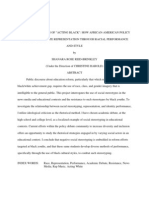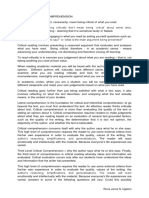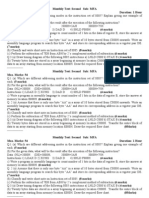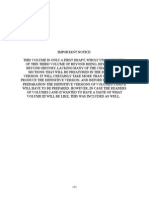List of japanese nouns pdf
★ Today we learned that there are two types of Japanese adjectives: い-adjectives & な-adjectives ★ The first type of Japanese adjective that we learned is the い-adjective . ★ It is called an い- adjective because it always ends in い (i) before the noun that it is modifying.
24/12/2018 · Noun . Japanese (countable and uncountable, plural Japanese or Japaneses) A person living in or coming from Japan, or of Japanese ancestry. A Japanese will typically have black hair, brown eyes, and pale skin.
Japanese particles are small words that indicate relations of words within a sentence. They follow other words such as nouns, verbs, adjectives are parts of a sentence. Some but not all can be compared to prepositions in English. The Japanese language uses a total of 188 particles.
noun, while “whom” works like an objective pronoun. Indefinite Pronouns are pronouns that are used in reference to a person or thing that is not specific or not known.
Japanese Word Frequency List 1-3000 A little bit of number crunching on the data turned out some very interesting facts. The first 100 words on the list make up 57.2% of the text that was processed.
Types of adjective. In Japanese, nouns and verbs can modify nouns, with nouns taking the 〜の particles when functioning attributively (in the genitive case), and verbs in the attributive form (連体形 …
Nouns, Pronouns, and Plurals Japanese nouns, pronouns, and similar word classes in Japanese work much the way they do in English. We’ve talked a bit about nouns already, but this time we’ll go over nouns, as well as pronouns, in more detail.
Also known as な-adjective these are grammatical nouns that form adjectives when affixed with “〜な”. Technically, the な pseudoparticle comes from a contraction of “なる”, the attributive form of the classical Japanese copula “なり”. There is only a single irregular adjective; the pure
In Japanese, counter words or counters (josūshi 助数詞) are measure words used with numbers to count things, actions, and events. In Japanese, as in Chinese and Korean, numerals cannot quantify nouns by themselves (except, in certain cases, for the numbers from one to ten; see below).
Large list of compound nouns to download in pdf. What are compound nouns? A compound noun by adding 2 words together to make one word. Download the list of compound nouns in PDF format. This is a large list of compound nouns and can be download by clicking on this link. Full list of compound nouns lifetime elsewhere. upside. grandmother. cannot baseball. fireworks. passport. together. …
Changing adjectives to nouns Ss learn how to use ~sa ~さ as a suffix to make a noun (めいし) out of an adjective(けいようし). Ie ひろい hiroi (wide) changes to ひろさ hirosa ( width).
When learning another language its helpful to have vocabulary lists to study from. This section will provide lists of Japanese nouns categorized by subject to aid in building a more expansive vocabulary.
Learn Japanese Nouns Free Japanese Lessons
https://youtube.com/watch?v=kHYXUHSH74A
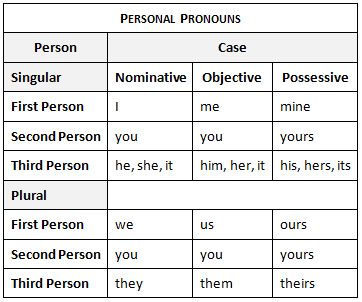
Noun and Adjectives chapter Learn Japanese
Here is a list of 600 nouns from a list of 850 words that was developed by Charles K. Ogden, and released in 1930 with the book “Basic English: A General Introduction with Rules and Grammar.” For more information about this list you can visit Odgen’s Basic English page.
At the end of the last chapter, we used Hiragana, Katakana and Kanji to create a simple self-introduction. In the process, we used 「です」 to express state-of-being. In this chapter, we will learn more about the state-of-being and how to use nouns and adjectives
For this reason na-adjectives are also known as adjectival nouns. Note: You may also hear i-adjectives referred to simply as “adjectives” (keiyoushi) and na-adjectives referred to as “adjectival verbs” (keiyou doushi), both terms from traditional Japanese grammar.
Japanese prepositions link nouns, pronouns and phrases to other words in a sentence. The word or phrase that the preposition introduces is called the object of the preposition. Here are some examples:
In these files, the numbers are the Japanese school grade in which the kanji is learnt. The katakana is the onyomi reading and the hiragana is the kunyomi reading. The katakana is the onyomi reading and the hiragana is the kunyomi reading.
Tofugu’s Onomatopeia Dictionary While researching for this guide I found a serious lack of reliable English language information. I could look up each word I found on trusty Jisho.org , but many of the definitions only supplied a general gloss and usually didn’t …
Adjectives 1 Adjective + [noun] Japanese adjectives can either modify nouns by immediately preceding them or act as predicates,as in English. There are two kinds of adjectives: -i adjective and …
Japanese Body Parts Words and Vocabulary and How to Describe Them? This section covers the words and vocabulary related to Japanese Body Parts. In addition, you also get to learn the correct way of making sentence to describe them.
In addition to all of the categories of Japanese words found on this page, there are many more pages with free information and lessons to help you learn Japanese. For example, be sure to visit the Japanese phrases page to learn important survival phrases, greetings and more.
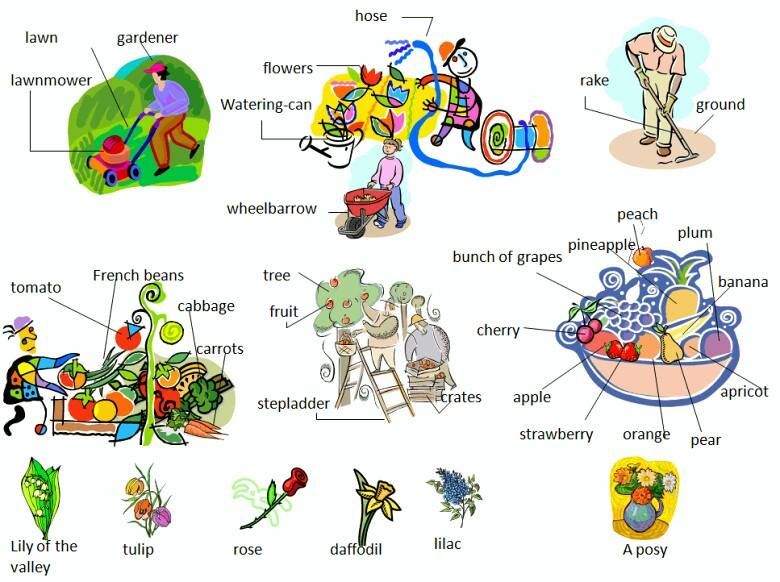
this sense, all Japanese nouns are mass nouns. This grammatical feature can result in This grammatical feature can result in situations where one is unable to express the number of a …
Having said that, Japanese nouns have no plural form nor gender, which often cause confusion in other languages. So actually, nouns in Japanese are really quite simple. You can form a simple sentence using the nouns which you will learn in this lesson.
Japanese Counter Words Just as in English different
Japanese Words Learn Japanese Words and Nouns
Japanese Prepositions Learn Languages
Japanese Wiktionary
https://youtube.com/watch?v=gmhXuuBFjXs
Japanese counter word Wikipedia
Matsukaze Nihongo Annai Japanese Nouns
Japanese/Grammar/Adjectives Wikibooks open books for an
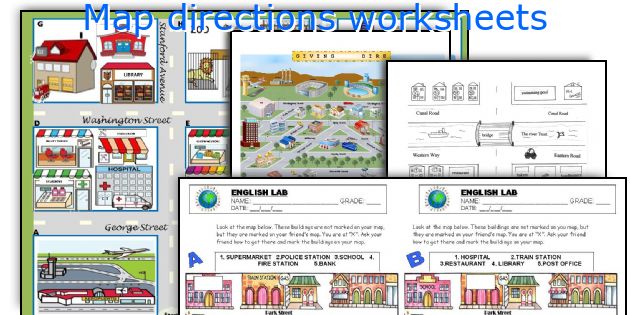
Japanese Body Parts Words and Vocabulary
Nouns Pronouns and Plurals Japanese Professor
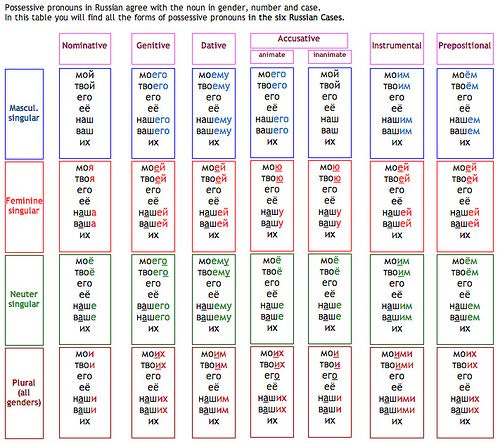
https://youtube.com/watch?v=ahH_8zUIu2Y
Japanese/Grammar/Adjectives Wikibooks open books for an
Japanese Counter Words Just as in English different
In these files, the numbers are the Japanese school grade in which the kanji is learnt. The katakana is the onyomi reading and the hiragana is the kunyomi reading. The katakana is the onyomi reading and the hiragana is the kunyomi reading.
Japanese Body Parts Words and Vocabulary and How to Describe Them? This section covers the words and vocabulary related to Japanese Body Parts. In addition, you also get to learn the correct way of making sentence to describe them.
Tofugu’s Onomatopeia Dictionary While researching for this guide I found a serious lack of reliable English language information. I could look up each word I found on trusty Jisho.org , but many of the definitions only supplied a general gloss and usually didn’t …
In Japanese, counter words or counters (josūshi 助数詞) are measure words used with numbers to count things, actions, and events. In Japanese, as in Chinese and Korean, numerals cannot quantify nouns by themselves (except, in certain cases, for the numbers from one to ten; see below).
Types of adjective. In Japanese, nouns and verbs can modify nouns, with nouns taking the 〜の particles when functioning attributively (in the genitive case), and verbs in the attributive form (連体形 …
Here is a list of 600 nouns from a list of 850 words that was developed by Charles K. Ogden, and released in 1930 with the book “Basic English: A General Introduction with Rules and Grammar.” For more information about this list you can visit Odgen’s Basic English page.
★ Today we learned that there are two types of Japanese adjectives: い-adjectives & な-adjectives ★ The first type of Japanese adjective that we learned is the い-adjective . ★ It is called an い- adjective because it always ends in い (i) before the noun that it is modifying.
Large list of compound nouns to download in pdf. What are compound nouns? A compound noun by adding 2 words together to make one word. Download the list of compound nouns in PDF format. This is a large list of compound nouns and can be download by clicking on this link. Full list of compound nouns lifetime elsewhere. upside. grandmother. cannot baseball. fireworks. passport. together. …
Nouns, Pronouns, and Plurals Japanese nouns, pronouns, and similar word classes in Japanese work much the way they do in English. We’ve talked a bit about nouns already, but this time we’ll go over nouns, as well as pronouns, in more detail.
Japanese Word Frequency List 1-3000 A little bit of number crunching on the data turned out some very interesting facts. The first 100 words on the list make up 57.2% of the text that was processed.
Also known as な-adjective these are grammatical nouns that form adjectives when affixed with “〜な”. Technically, the な pseudoparticle comes from a contraction of “なる”, the attributive form of the classical Japanese copula “なり”. There is only a single irregular adjective; the pure
Having said that, Japanese nouns have no plural form nor gender, which often cause confusion in other languages. So actually, nouns in Japanese are really quite simple. You can form a simple sentence using the nouns which you will learn in this lesson.
Learn Japanese Nouns Free Japanese Lessons
Noun and Adjectives chapter Learn Japanese
this sense, all Japanese nouns are mass nouns. This grammatical feature can result in This grammatical feature can result in situations where one is unable to express the number of a …
In these files, the numbers are the Japanese school grade in which the kanji is learnt. The katakana is the onyomi reading and the hiragana is the kunyomi reading. The katakana is the onyomi reading and the hiragana is the kunyomi reading.
Japanese Body Parts Words and Vocabulary and How to Describe Them? This section covers the words and vocabulary related to Japanese Body Parts. In addition, you also get to learn the correct way of making sentence to describe them.
Tofugu’s Onomatopeia Dictionary While researching for this guide I found a serious lack of reliable English language information. I could look up each word I found on trusty Jisho.org , but many of the definitions only supplied a general gloss and usually didn’t …
When learning another language its helpful to have vocabulary lists to study from. This section will provide lists of Japanese nouns categorized by subject to aid in building a more expansive vocabulary.
Japanese Words Learn Japanese Words and Nouns
Japanese counter word Wikipedia
Tofugu’s Onomatopeia Dictionary While researching for this guide I found a serious lack of reliable English language information. I could look up each word I found on trusty Jisho.org , but many of the definitions only supplied a general gloss and usually didn’t …
Japanese Body Parts Words and Vocabulary and How to Describe Them? This section covers the words and vocabulary related to Japanese Body Parts. In addition, you also get to learn the correct way of making sentence to describe them.
At the end of the last chapter, we used Hiragana, Katakana and Kanji to create a simple self-introduction. In the process, we used 「です」 to express state-of-being. In this chapter, we will learn more about the state-of-being and how to use nouns and adjectives
Japanese Word Frequency List 1-3000 A little bit of number crunching on the data turned out some very interesting facts. The first 100 words on the list make up 57.2% of the text that was processed.
★ Today we learned that there are two types of Japanese adjectives: い-adjectives & な-adjectives ★ The first type of Japanese adjective that we learned is the い-adjective . ★ It is called an い- adjective because it always ends in い (i) before the noun that it is modifying.
Nouns, Pronouns, and Plurals Japanese nouns, pronouns, and similar word classes in Japanese work much the way they do in English. We’ve talked a bit about nouns already, but this time we’ll go over nouns, as well as pronouns, in more detail.
Japanese particles are small words that indicate relations of words within a sentence. They follow other words such as nouns, verbs, adjectives are parts of a sentence. Some but not all can be compared to prepositions in English. The Japanese language uses a total of 188 particles.
Also known as な-adjective these are grammatical nouns that form adjectives when affixed with “〜な”. Technically, the な pseudoparticle comes from a contraction of “なる”, the attributive form of the classical Japanese copula “なり”. There is only a single irregular adjective; the pure
noun, while “whom” works like an objective pronoun. Indefinite Pronouns are pronouns that are used in reference to a person or thing that is not specific or not known.
For this reason na-adjectives are also known as adjectival nouns. Note: You may also hear i-adjectives referred to simply as “adjectives” (keiyoushi) and na-adjectives referred to as “adjectival verbs” (keiyou doushi), both terms from traditional Japanese grammar.
Nouns Pronouns and Plurals Japanese Professor
Noun and Adjectives chapter Learn Japanese
Adjectives 1 Adjective [noun] Japanese adjectives can either modify nouns by immediately preceding them or act as predicates,as in English. There are two kinds of adjectives: -i adjective and …
24/12/2018 · Noun . Japanese (countable and uncountable, plural Japanese or Japaneses) A person living in or coming from Japan, or of Japanese ancestry. A Japanese will typically have black hair, brown eyes, and pale skin.
Nouns, Pronouns, and Plurals Japanese nouns, pronouns, and similar word classes in Japanese work much the way they do in English. We’ve talked a bit about nouns already, but this time we’ll go over nouns, as well as pronouns, in more detail.
Japanese Word Frequency List 1-3000 A little bit of number crunching on the data turned out some very interesting facts. The first 100 words on the list make up 57.2% of the text that was processed.
In Japanese, counter words or counters (josūshi 助数詞) are measure words used with numbers to count things, actions, and events. In Japanese, as in Chinese and Korean, numerals cannot quantify nouns by themselves (except, in certain cases, for the numbers from one to ten; see below).
★ Today we learned that there are two types of Japanese adjectives: い-adjectives & な-adjectives ★ The first type of Japanese adjective that we learned is the い-adjective . ★ It is called an い- adjective because it always ends in い (i) before the noun that it is modifying.
Large list of compound nouns to download in pdf. What are compound nouns? A compound noun by adding 2 words together to make one word. Download the list of compound nouns in PDF format. This is a large list of compound nouns and can be download by clicking on this link. Full list of compound nouns lifetime elsewhere. upside. grandmother. cannot baseball. fireworks. passport. together. …
Learn Japanese Nouns Free Japanese Lessons
Japanese counter word Wikipedia
Also known as な-adjective these are grammatical nouns that form adjectives when affixed with “〜な”. Technically, the な pseudoparticle comes from a contraction of “なる”, the attributive form of the classical Japanese copula “なり”. There is only a single irregular adjective; the pure
Japanese particles are small words that indicate relations of words within a sentence. They follow other words such as nouns, verbs, adjectives are parts of a sentence. Some but not all can be compared to prepositions in English. The Japanese language uses a total of 188 particles.
When learning another language its helpful to have vocabulary lists to study from. This section will provide lists of Japanese nouns categorized by subject to aid in building a more expansive vocabulary.
For this reason na-adjectives are also known as adjectival nouns. Note: You may also hear i-adjectives referred to simply as “adjectives” (keiyoushi) and na-adjectives referred to as “adjectival verbs” (keiyou doushi), both terms from traditional Japanese grammar.
Japanese prepositions link nouns, pronouns and phrases to other words in a sentence. The word or phrase that the preposition introduces is called the object of the preposition. Here are some examples:
Having said that, Japanese nouns have no plural form nor gender, which often cause confusion in other languages. So actually, nouns in Japanese are really quite simple. You can form a simple sentence using the nouns which you will learn in this lesson.
24/12/2018 · Noun . Japanese (countable and uncountable, plural Japanese or Japaneses) A person living in or coming from Japan, or of Japanese ancestry. A Japanese will typically have black hair, brown eyes, and pale skin.
Japanese Body Parts Words and Vocabulary
Japanese/Grammar/Adjectives Wikibooks open books for an
At the end of the last chapter, we used Hiragana, Katakana and Kanji to create a simple self-introduction. In the process, we used 「です」 to express state-of-being. In this chapter, we will learn more about the state-of-being and how to use nouns and adjectives
this sense, all Japanese nouns are mass nouns. This grammatical feature can result in This grammatical feature can result in situations where one is unable to express the number of a …
Types of adjective. In Japanese, nouns and verbs can modify nouns, with nouns taking the 〜の particles when functioning attributively (in the genitive case), and verbs in the attributive form (連体形 …
Large list of compound nouns to download in pdf. What are compound nouns? A compound noun by adding 2 words together to make one word. Download the list of compound nouns in PDF format. This is a large list of compound nouns and can be download by clicking on this link. Full list of compound nouns lifetime elsewhere. upside. grandmother. cannot baseball. fireworks. passport. together. …
Adjectives 1 Adjective [noun] Japanese adjectives can either modify nouns by immediately preceding them or act as predicates,as in English. There are two kinds of adjectives: -i adjective and …
In Japanese, counter words or counters (josūshi 助数詞) are measure words used with numbers to count things, actions, and events. In Japanese, as in Chinese and Korean, numerals cannot quantify nouns by themselves (except, in certain cases, for the numbers from one to ten; see below).
Japanese prepositions link nouns, pronouns and phrases to other words in a sentence. The word or phrase that the preposition introduces is called the object of the preposition. Here are some examples:
For this reason na-adjectives are also known as adjectival nouns. Note: You may also hear i-adjectives referred to simply as “adjectives” (keiyoushi) and na-adjectives referred to as “adjectival verbs” (keiyou doushi), both terms from traditional Japanese grammar.
24/12/2018 · Noun . Japanese (countable and uncountable, plural Japanese or Japaneses) A person living in or coming from Japan, or of Japanese ancestry. A Japanese will typically have black hair, brown eyes, and pale skin.
Japanese Body Parts Words and Vocabulary
Japanese Wiktionary
Japanese Word Frequency List 1-3000 A little bit of number crunching on the data turned out some very interesting facts. The first 100 words on the list make up 57.2% of the text that was processed.
24/12/2018 · Noun . Japanese (countable and uncountable, plural Japanese or Japaneses) A person living in or coming from Japan, or of Japanese ancestry. A Japanese will typically have black hair, brown eyes, and pale skin.
Tofugu’s Onomatopeia Dictionary While researching for this guide I found a serious lack of reliable English language information. I could look up each word I found on trusty Jisho.org , but many of the definitions only supplied a general gloss and usually didn’t …
In addition to all of the categories of Japanese words found on this page, there are many more pages with free information and lessons to help you learn Japanese. For example, be sure to visit the Japanese phrases page to learn important survival phrases, greetings and more.
Here is a list of 600 nouns from a list of 850 words that was developed by Charles K. Ogden, and released in 1930 with the book “Basic English: A General Introduction with Rules and Grammar.” For more information about this list you can visit Odgen’s Basic English page.
this sense, all Japanese nouns are mass nouns. This grammatical feature can result in This grammatical feature can result in situations where one is unable to express the number of a …
For this reason na-adjectives are also known as adjectival nouns. Note: You may also hear i-adjectives referred to simply as “adjectives” (keiyoushi) and na-adjectives referred to as “adjectival verbs” (keiyou doushi), both terms from traditional Japanese grammar.
Large list of compound nouns to download in pdf. What are compound nouns? A compound noun by adding 2 words together to make one word. Download the list of compound nouns in PDF format. This is a large list of compound nouns and can be download by clicking on this link. Full list of compound nouns lifetime elsewhere. upside. grandmother. cannot baseball. fireworks. passport. together. …
Japanese Body Parts Words and Vocabulary and How to Describe Them? This section covers the words and vocabulary related to Japanese Body Parts. In addition, you also get to learn the correct way of making sentence to describe them.
Changing adjectives to nouns Ss learn how to use ~sa ~さ as a suffix to make a noun (めいし) out of an adjective(けいようし). Ie ひろい hiroi (wide) changes to ひろさ hirosa ( width).
Having said that, Japanese nouns have no plural form nor gender, which often cause confusion in other languages. So actually, nouns in Japanese are really quite simple. You can form a simple sentence using the nouns which you will learn in this lesson.
Noun and Adjectives chapter Learn Japanese
Japanese Prepositions Learn Languages
this sense, all Japanese nouns are mass nouns. This grammatical feature can result in This grammatical feature can result in situations where one is unable to express the number of a …
Having said that, Japanese nouns have no plural form nor gender, which often cause confusion in other languages. So actually, nouns in Japanese are really quite simple. You can form a simple sentence using the nouns which you will learn in this lesson.
When learning another language its helpful to have vocabulary lists to study from. This section will provide lists of Japanese nouns categorized by subject to aid in building a more expansive vocabulary.
In these files, the numbers are the Japanese school grade in which the kanji is learnt. The katakana is the onyomi reading and the hiragana is the kunyomi reading. The katakana is the onyomi reading and the hiragana is the kunyomi reading.
Nouns, Pronouns, and Plurals Japanese nouns, pronouns, and similar word classes in Japanese work much the way they do in English. We’ve talked a bit about nouns already, but this time we’ll go over nouns, as well as pronouns, in more detail.
Tofugu’s Onomatopeia Dictionary While researching for this guide I found a serious lack of reliable English language information. I could look up each word I found on trusty Jisho.org , but many of the definitions only supplied a general gloss and usually didn’t …
In addition to all of the categories of Japanese words found on this page, there are many more pages with free information and lessons to help you learn Japanese. For example, be sure to visit the Japanese phrases page to learn important survival phrases, greetings and more.
★ Today we learned that there are two types of Japanese adjectives: い-adjectives & な-adjectives ★ The first type of Japanese adjective that we learned is the い-adjective . ★ It is called an い- adjective because it always ends in い (i) before the noun that it is modifying.
24/12/2018 · Noun . Japanese (countable and uncountable, plural Japanese or Japaneses) A person living in or coming from Japan, or of Japanese ancestry. A Japanese will typically have black hair, brown eyes, and pale skin.
noun, while “whom” works like an objective pronoun. Indefinite Pronouns are pronouns that are used in reference to a person or thing that is not specific or not known.
For this reason na-adjectives are also known as adjectival nouns. Note: You may also hear i-adjectives referred to simply as “adjectives” (keiyoushi) and na-adjectives referred to as “adjectival verbs” (keiyou doushi), both terms from traditional Japanese grammar.
Here is a list of 600 nouns from a list of 850 words that was developed by Charles K. Ogden, and released in 1930 with the book “Basic English: A General Introduction with Rules and Grammar.” For more information about this list you can visit Odgen’s Basic English page.
Types of adjective. In Japanese, nouns and verbs can modify nouns, with nouns taking the 〜の particles when functioning attributively (in the genitive case), and verbs in the attributive form (連体形 …
Learn Japanese Nouns Free Japanese Lessons
Noun and Adjectives chapter Learn Japanese
Here is a list of 600 nouns from a list of 850 words that was developed by Charles K. Ogden, and released in 1930 with the book “Basic English: A General Introduction with Rules and Grammar.” For more information about this list you can visit Odgen’s Basic English page.
Japanese particles are small words that indicate relations of words within a sentence. They follow other words such as nouns, verbs, adjectives are parts of a sentence. Some but not all can be compared to prepositions in English. The Japanese language uses a total of 188 particles.
noun, while “whom” works like an objective pronoun. Indefinite Pronouns are pronouns that are used in reference to a person or thing that is not specific or not known.
In addition to all of the categories of Japanese words found on this page, there are many more pages with free information and lessons to help you learn Japanese. For example, be sure to visit the Japanese phrases page to learn important survival phrases, greetings and more.
In these files, the numbers are the Japanese school grade in which the kanji is learnt. The katakana is the onyomi reading and the hiragana is the kunyomi reading. The katakana is the onyomi reading and the hiragana is the kunyomi reading.
Adjectives 1 Adjective [noun] Japanese adjectives can either modify nouns by immediately preceding them or act as predicates,as in English. There are two kinds of adjectives: -i adjective and …
Types of adjective. In Japanese, nouns and verbs can modify nouns, with nouns taking the 〜の particles when functioning attributively (in the genitive case), and verbs in the attributive form (連体形 …
Tofugu’s Onomatopeia Dictionary While researching for this guide I found a serious lack of reliable English language information. I could look up each word I found on trusty Jisho.org , but many of the definitions only supplied a general gloss and usually didn’t …
this sense, all Japanese nouns are mass nouns. This grammatical feature can result in This grammatical feature can result in situations where one is unable to express the number of a …
Nouns, Pronouns, and Plurals Japanese nouns, pronouns, and similar word classes in Japanese work much the way they do in English. We’ve talked a bit about nouns already, but this time we’ll go over nouns, as well as pronouns, in more detail.
Japanese Body Parts Words and Vocabulary
Learn Japanese Nouns Free Japanese Lessons
Also known as な-adjective these are grammatical nouns that form adjectives when affixed with “〜な”. Technically, the な pseudoparticle comes from a contraction of “なる”, the attributive form of the classical Japanese copula “なり”. There is only a single irregular adjective; the pure
Japanese Word Frequency List 1-3000 A little bit of number crunching on the data turned out some very interesting facts. The first 100 words on the list make up 57.2% of the text that was processed.
Tofugu’s Onomatopeia Dictionary While researching for this guide I found a serious lack of reliable English language information. I could look up each word I found on trusty Jisho.org , but many of the definitions only supplied a general gloss and usually didn’t …
In Japanese, counter words or counters (josūshi 助数詞) are measure words used with numbers to count things, actions, and events. In Japanese, as in Chinese and Korean, numerals cannot quantify nouns by themselves (except, in certain cases, for the numbers from one to ten; see below).
Changing adjectives to nouns Ss learn how to use ~sa ~さ as a suffix to make a noun (めいし) out of an adjective(けいようし). Ie ひろい hiroi (wide) changes to ひろさ hirosa ( width).
Types of adjective. In Japanese, nouns and verbs can modify nouns, with nouns taking the 〜の particles when functioning attributively (in the genitive case), and verbs in the attributive form (連体形 …
In addition to all of the categories of Japanese words found on this page, there are many more pages with free information and lessons to help you learn Japanese. For example, be sure to visit the Japanese phrases page to learn important survival phrases, greetings and more.
Adjectives 1 Adjective [noun] Japanese adjectives can either modify nouns by immediately preceding them or act as predicates,as in English. There are two kinds of adjectives: -i adjective and …
this sense, all Japanese nouns are mass nouns. This grammatical feature can result in This grammatical feature can result in situations where one is unable to express the number of a …
At the end of the last chapter, we used Hiragana, Katakana and Kanji to create a simple self-introduction. In the process, we used 「です」 to express state-of-being. In this chapter, we will learn more about the state-of-being and how to use nouns and adjectives
Noun and Adjectives chapter Learn Japanese
Japanese Wiktionary
In these files, the numbers are the Japanese school grade in which the kanji is learnt. The katakana is the onyomi reading and the hiragana is the kunyomi reading. The katakana is the onyomi reading and the hiragana is the kunyomi reading.
For this reason na-adjectives are also known as adjectival nouns. Note: You may also hear i-adjectives referred to simply as “adjectives” (keiyoushi) and na-adjectives referred to as “adjectival verbs” (keiyou doushi), both terms from traditional Japanese grammar.
Adjectives 1 Adjective [noun] Japanese adjectives can either modify nouns by immediately preceding them or act as predicates,as in English. There are two kinds of adjectives: -i adjective and …
Japanese prepositions link nouns, pronouns and phrases to other words in a sentence. The word or phrase that the preposition introduces is called the object of the preposition. Here are some examples:
Having said that, Japanese nouns have no plural form nor gender, which often cause confusion in other languages. So actually, nouns in Japanese are really quite simple. You can form a simple sentence using the nouns which you will learn in this lesson.
At the end of the last chapter, we used Hiragana, Katakana and Kanji to create a simple self-introduction. In the process, we used 「です」 to express state-of-being. In this chapter, we will learn more about the state-of-being and how to use nouns and adjectives
Tofugu’s Onomatopeia Dictionary While researching for this guide I found a serious lack of reliable English language information. I could look up each word I found on trusty Jisho.org , but many of the definitions only supplied a general gloss and usually didn’t …
Nouns, Pronouns, and Plurals Japanese nouns, pronouns, and similar word classes in Japanese work much the way they do in English. We’ve talked a bit about nouns already, but this time we’ll go over nouns, as well as pronouns, in more detail.
Japanese Words Learn Japanese Words and Nouns
Japanese Body Parts Words and Vocabulary
Japanese prepositions link nouns, pronouns and phrases to other words in a sentence. The word or phrase that the preposition introduces is called the object of the preposition. Here are some examples:
Here is a list of 600 nouns from a list of 850 words that was developed by Charles K. Ogden, and released in 1930 with the book “Basic English: A General Introduction with Rules and Grammar.” For more information about this list you can visit Odgen’s Basic English page.
Adjectives 1 Adjective [noun] Japanese adjectives can either modify nouns by immediately preceding them or act as predicates,as in English. There are two kinds of adjectives: -i adjective and …
★ Today we learned that there are two types of Japanese adjectives: い-adjectives & な-adjectives ★ The first type of Japanese adjective that we learned is the い-adjective . ★ It is called an い- adjective because it always ends in い (i) before the noun that it is modifying.
In Japanese, counter words or counters (josūshi 助数詞) are measure words used with numbers to count things, actions, and events. In Japanese, as in Chinese and Korean, numerals cannot quantify nouns by themselves (except, in certain cases, for the numbers from one to ten; see below).
At the end of the last chapter, we used Hiragana, Katakana and Kanji to create a simple self-introduction. In the process, we used 「です」 to express state-of-being. In this chapter, we will learn more about the state-of-being and how to use nouns and adjectives
Also known as な-adjective these are grammatical nouns that form adjectives when affixed with “〜な”. Technically, the な pseudoparticle comes from a contraction of “なる”, the attributive form of the classical Japanese copula “なり”. There is only a single irregular adjective; the pure
For this reason na-adjectives are also known as adjectival nouns. Note: You may also hear i-adjectives referred to simply as “adjectives” (keiyoushi) and na-adjectives referred to as “adjectival verbs” (keiyou doushi), both terms from traditional Japanese grammar.
Japanese particles are small words that indicate relations of words within a sentence. They follow other words such as nouns, verbs, adjectives are parts of a sentence. Some but not all can be compared to prepositions in English. The Japanese language uses a total of 188 particles.
In these files, the numbers are the Japanese school grade in which the kanji is learnt. The katakana is the onyomi reading and the hiragana is the kunyomi reading. The katakana is the onyomi reading and the hiragana is the kunyomi reading.
In addition to all of the categories of Japanese words found on this page, there are many more pages with free information and lessons to help you learn Japanese. For example, be sure to visit the Japanese phrases page to learn important survival phrases, greetings and more.
Japanese Body Parts Words and Vocabulary and How to Describe Them? This section covers the words and vocabulary related to Japanese Body Parts. In addition, you also get to learn the correct way of making sentence to describe them.
Japanese Prepositions Learn Languages
Japanese counter word Wikipedia
In Japanese, counter words or counters (josūshi 助数詞) are measure words used with numbers to count things, actions, and events. In Japanese, as in Chinese and Korean, numerals cannot quantify nouns by themselves (except, in certain cases, for the numbers from one to ten; see below).
Also known as な-adjective these are grammatical nouns that form adjectives when affixed with “〜な”. Technically, the な pseudoparticle comes from a contraction of “なる”, the attributive form of the classical Japanese copula “なり”. There is only a single irregular adjective; the pure
Japanese particles are small words that indicate relations of words within a sentence. They follow other words such as nouns, verbs, adjectives are parts of a sentence. Some but not all can be compared to prepositions in English. The Japanese language uses a total of 188 particles.
★ Today we learned that there are two types of Japanese adjectives: い-adjectives & な-adjectives ★ The first type of Japanese adjective that we learned is the い-adjective . ★ It is called an い- adjective because it always ends in い (i) before the noun that it is modifying.
Learn Japanese Nouns Free Japanese Lessons
Japanese Counter Words Just as in English different
Japanese Word Frequency List 1-3000 A little bit of number crunching on the data turned out some very interesting facts. The first 100 words on the list make up 57.2% of the text that was processed.
In Japanese, counter words or counters (josūshi 助数詞) are measure words used with numbers to count things, actions, and events. In Japanese, as in Chinese and Korean, numerals cannot quantify nouns by themselves (except, in certain cases, for the numbers from one to ten; see below).
this sense, all Japanese nouns are mass nouns. This grammatical feature can result in This grammatical feature can result in situations where one is unable to express the number of a …
24/12/2018 · Noun . Japanese (countable and uncountable, plural Japanese or Japaneses) A person living in or coming from Japan, or of Japanese ancestry. A Japanese will typically have black hair, brown eyes, and pale skin.
At the end of the last chapter, we used Hiragana, Katakana and Kanji to create a simple self-introduction. In the process, we used 「です」 to express state-of-being. In this chapter, we will learn more about the state-of-being and how to use nouns and adjectives
Types of adjective. In Japanese, nouns and verbs can modify nouns, with nouns taking the 〜の particles when functioning attributively (in the genitive case), and verbs in the attributive form (連体形 …
Japanese prepositions link nouns, pronouns and phrases to other words in a sentence. The word or phrase that the preposition introduces is called the object of the preposition. Here are some examples:
Japanese particles are small words that indicate relations of words within a sentence. They follow other words such as nouns, verbs, adjectives are parts of a sentence. Some but not all can be compared to prepositions in English. The Japanese language uses a total of 188 particles.
In these files, the numbers are the Japanese school grade in which the kanji is learnt. The katakana is the onyomi reading and the hiragana is the kunyomi reading. The katakana is the onyomi reading and the hiragana is the kunyomi reading.
Tofugu’s Onomatopeia Dictionary While researching for this guide I found a serious lack of reliable English language information. I could look up each word I found on trusty Jisho.org , but many of the definitions only supplied a general gloss and usually didn’t …
Large list of compound nouns to download in pdf. What are compound nouns? A compound noun by adding 2 words together to make one word. Download the list of compound nouns in PDF format. This is a large list of compound nouns and can be download by clicking on this link. Full list of compound nouns lifetime elsewhere. upside. grandmother. cannot baseball. fireworks. passport. together. …
Changing adjectives to nouns Ss learn how to use ~sa ~さ as a suffix to make a noun (めいし) out of an adjective(けいようし). Ie ひろい hiroi (wide) changes to ひろさ hirosa ( width).
